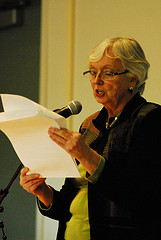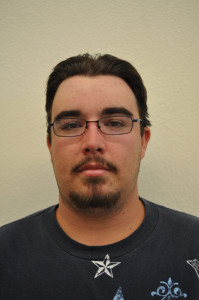Safe from drowning but not fully out of the water

()
February 23, 2010
Jubilation greeted the Accreditation Commission of Junior and Community Colleges’ announcement that DVC is no longer one step away from becoming a satellite campus of Los Medanos or Contra Costa College.
By moving DVC from “show cause” (the bottom rung of the proverbial ladder) to “probation,” the Commission placed the college one step closer to full accreditation
But the clock continues to tick.
DVC has until October 2010 to satisfy all of the Commission’s recommendations outlined in its evaluation team’s report of November 2009.
“We really felt a huge sense of relief and accomplishment,” said President Judy Walters of her reaction to the Commission’s Feb. 1 letter, which arrived by fax.
Noting that DVC had “completed significant amounts of good work to address the deficiencies noted in the Commission’s action letter of January 2009,” it encouraged the college “to continue its work to fully address all deficiencies.”
In its confidential report to the commission in November 2009, the evaluation team said,
“The climate [of DVC] has changed from one of isolation and resistance to inclusion and participation.”
Walters attributed some of that change to the DVC community’s stunned reaction a year ago to being placed on “show cause,” a finding that requires to college to resolve all noted problems within two years or face closure.”
“Everyone said, ‘We don’t want to be tagged with these old names and these old labels anymore,'” Walters said. “‘We are working together.'”
English professor Keith Mikolavich, who served as co-chair of a work group within DVC’s accreditation oversight task force said, “Going on ‘show cause’ forced us to change. We knew we had problems but when someone from the outside says ‘get your house in order,’ it gets you a lot more focused.”
The Commission’s evaluation team found the college had fully satisfied three of the eight problem areas that resulted in the “show cause” decision.
They included improving its curriculum process to include “timely, systematic review” of courses and programs, creating a calendar for Student Learning Outcomes and identifying SLOs for all programs, and creating a “well-designed, well-written” technology plan.
Problem areas only partially satisfied included clarifying decision-making roles, developing college-wide planning tied to the DVC’s mission statement and resource allocation, developing a process of program review, and improving communication and collaboration among DVC’s various constituent groups.
DVC has an Oct. 15, 2010 deadline to correct remaining problems and submit its next report to the Commission.
“Basically, we need to complete what we said we were going to do,” said interim executive dean Ted Wieden.
Wieden said he will meet with Walters and the heads of work groups in the coming weeks.
One focus will be analyzing whether any of the plans devised over the past year to correct problems need to be changed, said Susan Lamb, vice president of instruction.
“A lot of these processes are new,” Lamb said. “So we have to look at them and say, ‘Is this how we want it?’ and make some adjustments.”
The report will be followed up by a visit by an evaluation team sometime in early November.
Contact Troy Patton at [email protected]









































































